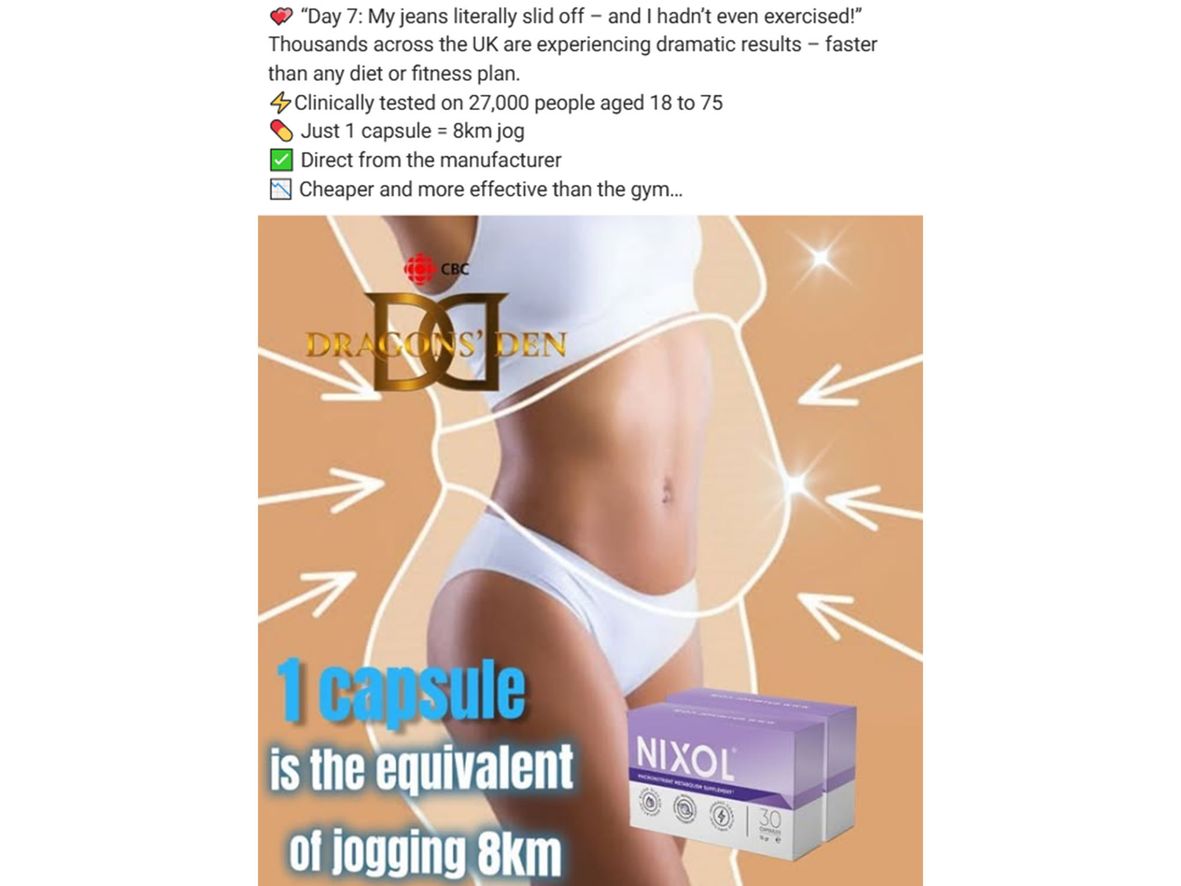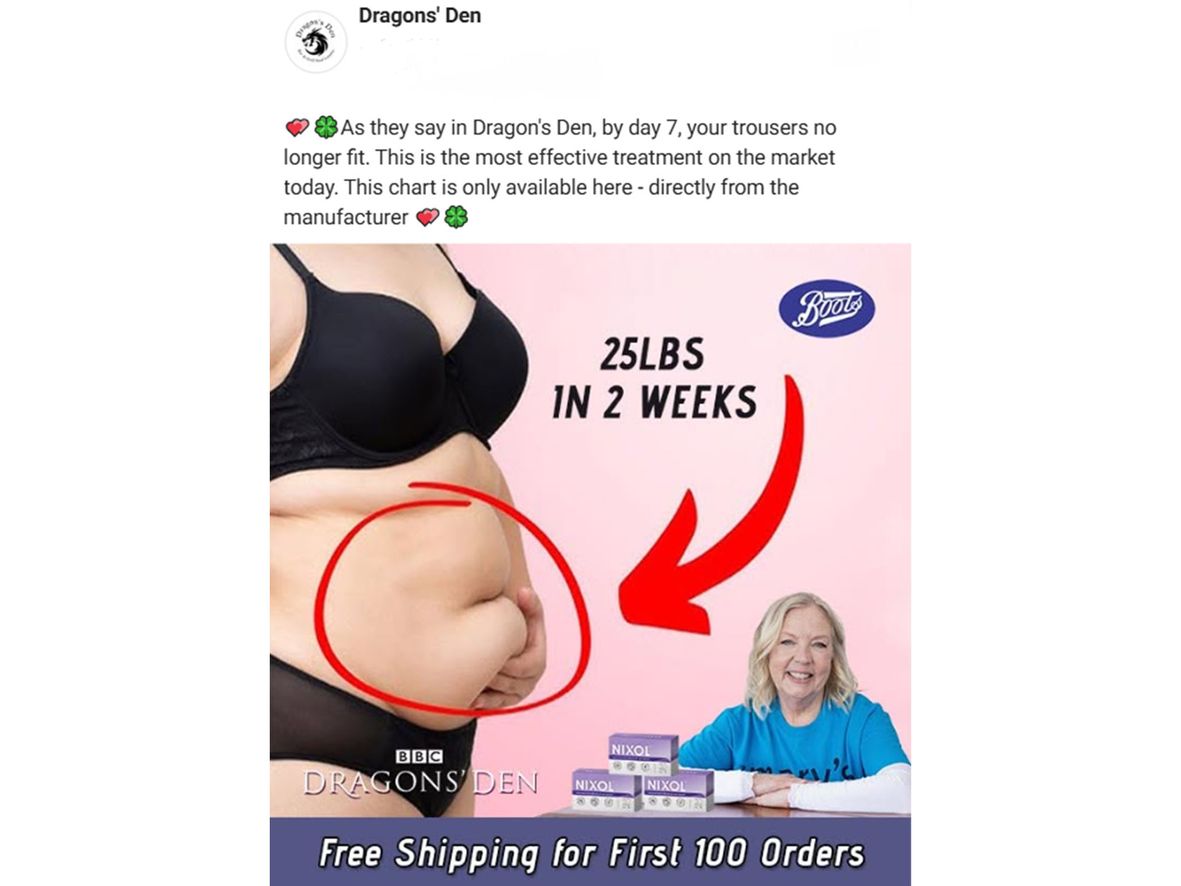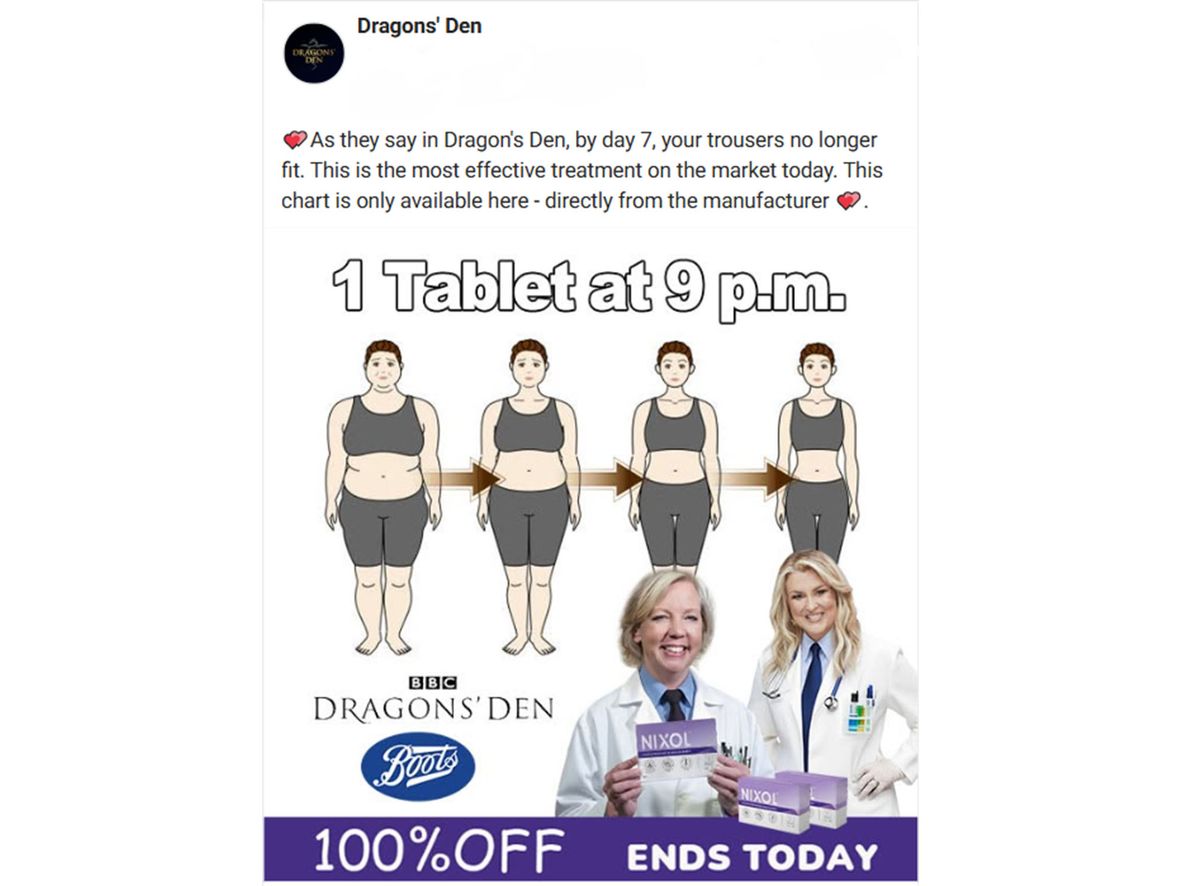Watch out for the Nixol diet pill scam

Numerous ads for Nixol diet pills falsely claim to be endorsed by the TV show, Dragons' Den, Which? warns.
Which? has previously warned about other dubious ads promoting health claims on social media after finding examples of fake endorsements and dodgy products conning consumers.
When we looked at Meta's ad library, we found 62 ads claiming to sell Nixol (a weight-loss pill) which either included Dragons' Den logos, were posted from accounts called 'Dragons' Den' or used the image of the well-known Dragon, Deborah Meaden. Many of the ads were also linked to websites impersonating a Daily Mail news story.
Below, we examine two examples of these ads, explain what we found and how you can avoid buying these dodgy products.
Sign up for scam alerts
Our emails will alert you to scams doing the rounds, and provide practical advice to keep you one step ahead of fraudsters.
Sign up for scam alerts
Nixol social media ads
Most of the 62 ads that Which? found claimed that Nixol diet pills were endorsed by Dragons' Den. Some ads described the product as a ‘powerful remedy’ and that you could lose ‘12kg in two weeks’.
Other ads claimed that the product was clinically tested by more than 29,000 women and men, is 100% natural and has no side effects.
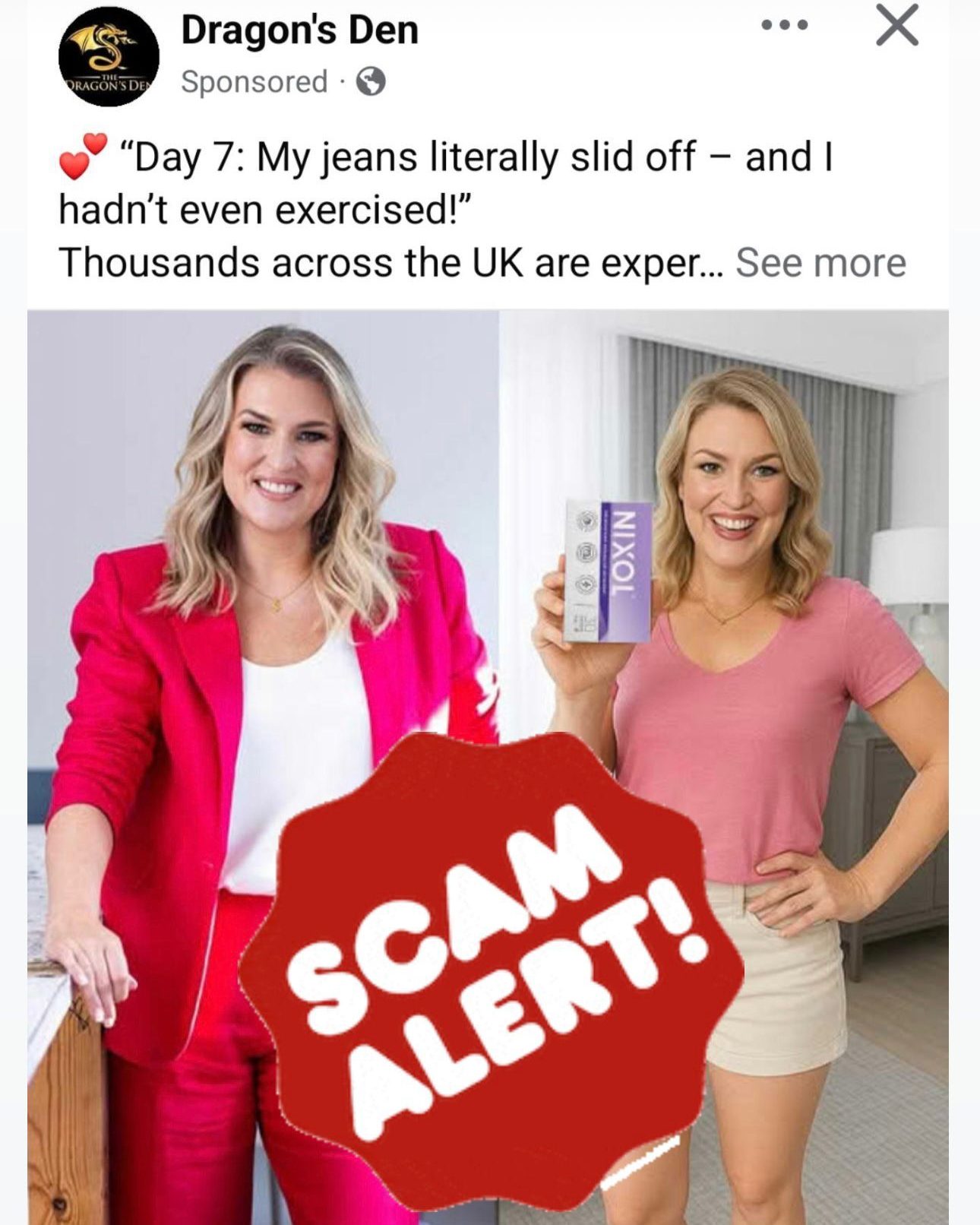
Ex-Dragon Sara Davies stated on Facebook that several people had contacted her about weight-loss tablets she supposedly endorsed after seeing ads on social media. She said that any ads which feature her are definitely a scam.
Which? tried to contact Nixol about these ads, but we had no response from its email address. When we tried calling the number on its website, the call didn't connect, and when we looked up its business unit address, it appears to be registered to another company. We contacted the company that occupies the building that Nixol claims to be registered at, and that company confirmed to us that it has no connection to Nixol and had not heard of Nixol before.
Websites impersonating Dragons' Den and the Daily Mail
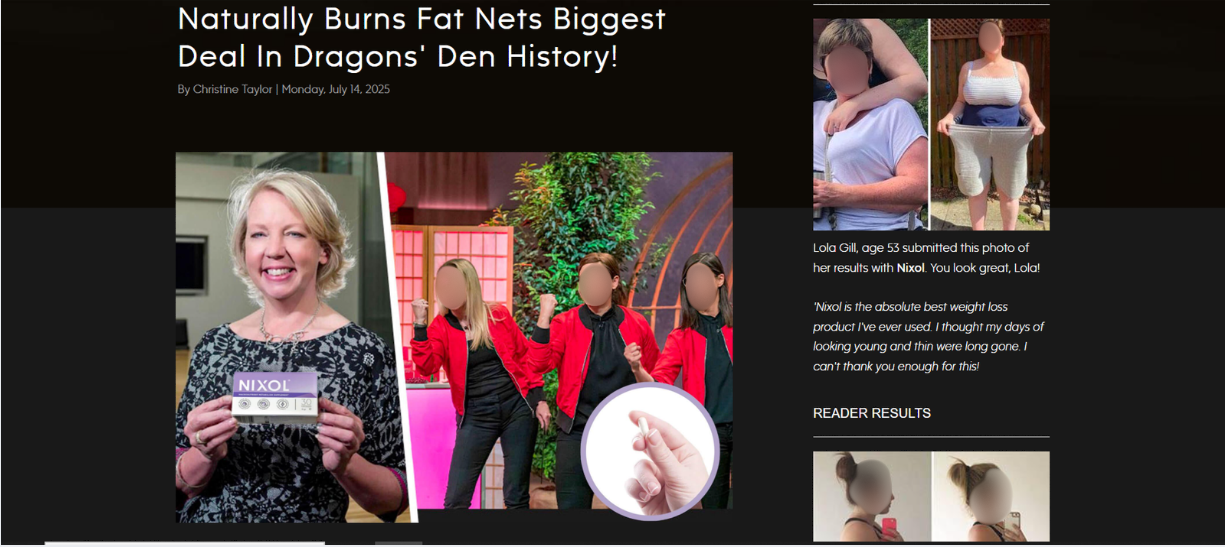
One of the websites linked to from the ads claimed that Nixol is endorsed by Dragons' Den, and the supposed entrepreneurs pitched the product on the show.
Which? traced the images used on the website to several other places on the internet and found that some were from news articles as well as real people who had lost weight via other methods.
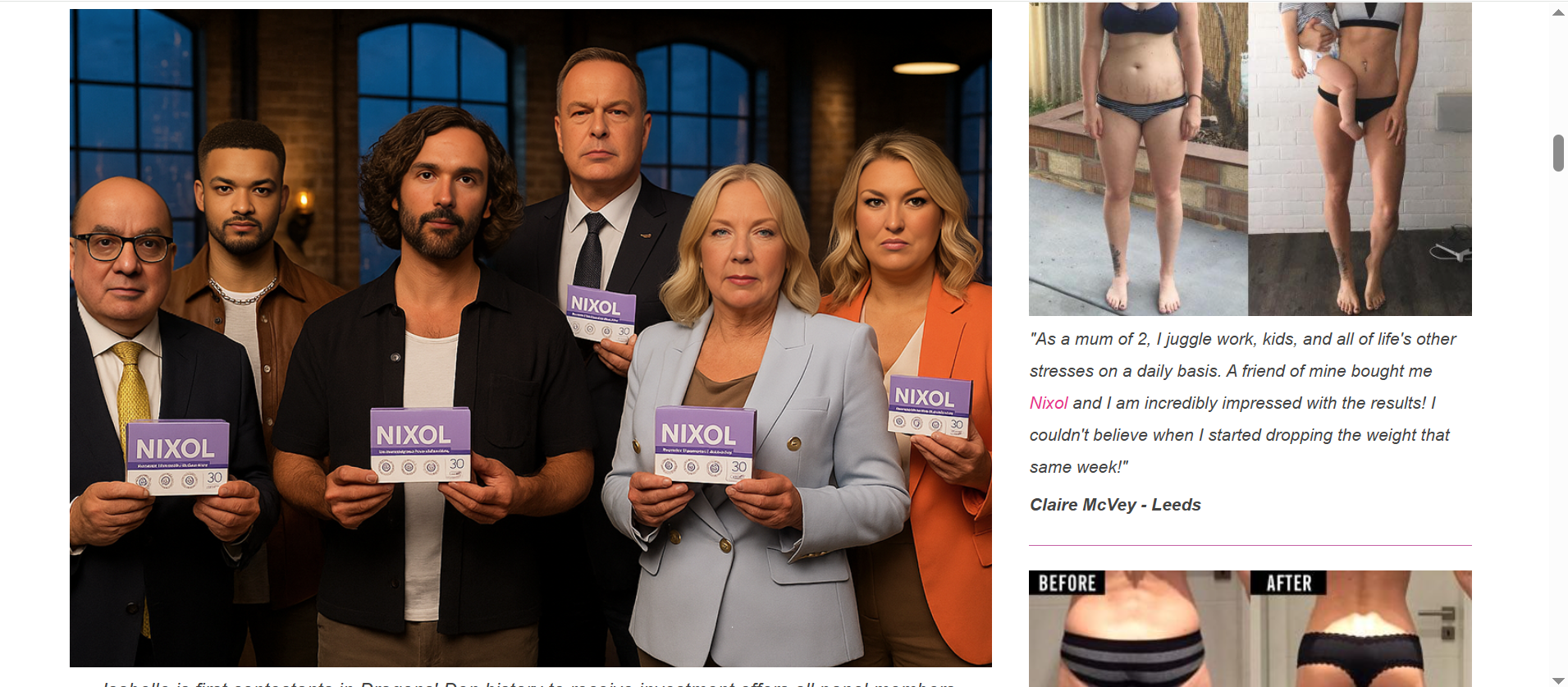
The website also featured an AI-generated image of the Dragons on Dragons' Den holding boxes of Nixol.

Another recently created website that was linked to from the ads impersonated the Daily Mail. The website was made to look like an article promoting the supplement, claiming it ‘naturally burns fat’ and received the ‘biggest deal in Dragons' Den history.’
This website was registered to the same location in Reykjavik, Iceland, where we also found several scam websites were registered to last year when we unpicked a global financial scam.
The websites led to a retail website where you can buy a Nixol for £55 per month. It's likely that buying this will lead to a subscription trap, which is a type of scam we've previously warned about.
On Trustpilot, buyers of Nixol complained of the pills not working, not being able to obtain a refund and coming across the product after seeing a fake Daily Mail report. One reviewer mentioned that a questionnaire they filled out advised them that they were obese, despite having a healthy BMI.
Weight loss medication
The Medicines and Healthcare products Regulatory Agency (MHRA) warns against obtaining any weight-loss medicines from any source other than a pharmacy, online or in-store, or through your doctor.
Fake diet pills have been found to contain dangerous and illegal substances.
If you've taken a medicine and are concerned about your health, call 111.
What does Meta say?
We reported all ads to Meta using its in-platform reporting tool.
Which? also contacted Meta about these ads, and it confirmed that it had removed the ads we flagged. However, at the time of writing this, several new ads promoting Nixol had been posted.
Meta also told Which? that under its health and wellness advertising policy, ads must not promote weight-loss products that include side-by-side before and after comparisons, close-ups to specific body areas or reinforce negative or unhealthy body images.
Spotting social media scams
If you come across a social media ad or post that you’re suspicious of, take these steps:
- Avoid offers or claims that sound too good to be true
- Double-check endorsements
- Use a tool like TinEye to trace the source of images used in the ad
- Use a tool like who.is to look up domain name registrations; a recent registration is a good indication that it's a scam website
- Don't give out personal or financial information
If you fall victim to a scam, call your bank immediately using the number on the back of your bank card and report it to Action Fraud, or call the police on 101 if you’re in Scotland.

